#truth&reconciliation
Explore tagged Tumblr posts
Text
Indigenous peoples continue to struggle to access complete and timely records about Indian Residential Schools, according to a new report by the Senate standing committee on Indigenous Peoples. The report, Missing Records, Missing Children, was released Thursday and includes 11 recommendations to improve access to residential school records, including for the Canadian government to compel Catholic entities to release documents to the National Centre for Truth and Reconciliation. "It's extremely important for the support of the survivors and the family members to bring closure because everyone is aging on," said Sen. Brian Francis, who is Mi'kmaw from Lennox Island First Nation and is chair of the committee. "The sooner we can get answers the better."
Continue Reading
Tagging: @newsfromstolenland
#truth and reconciliation#first nations#indigenous#residential schools#cdnpoli#canada#canadian politics#canadian news#canadian
4K notes
·
View notes
Photo
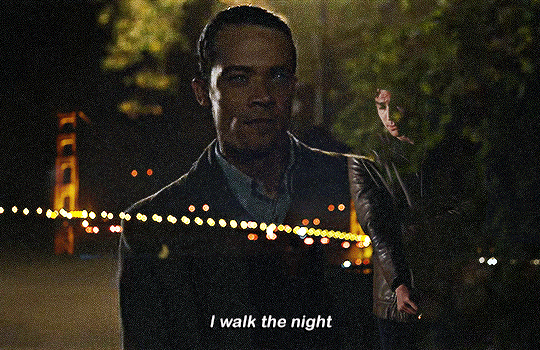
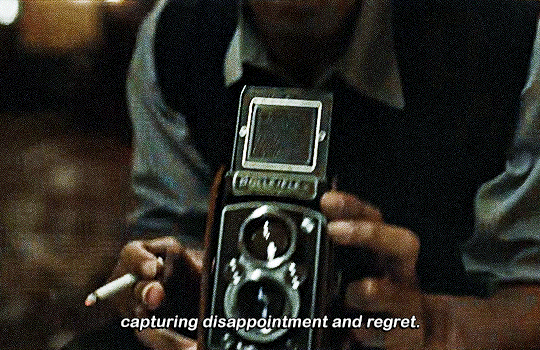
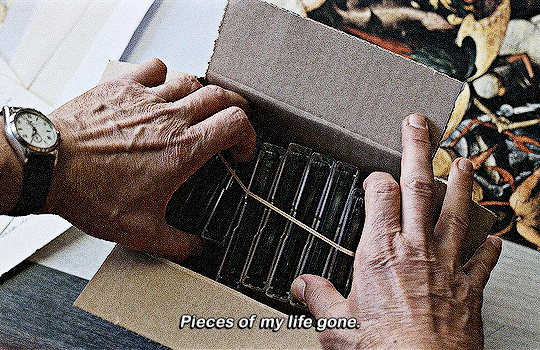
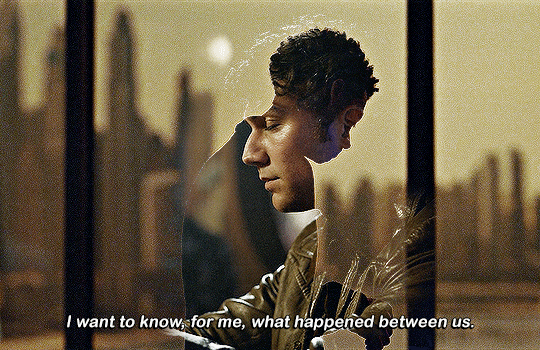
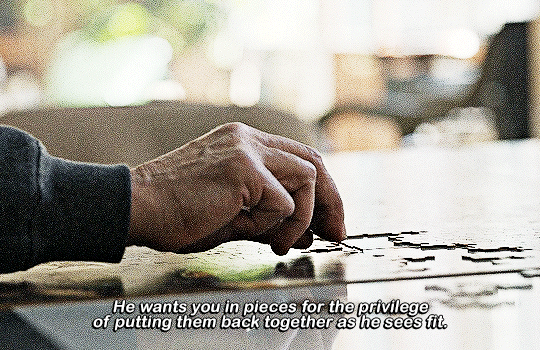
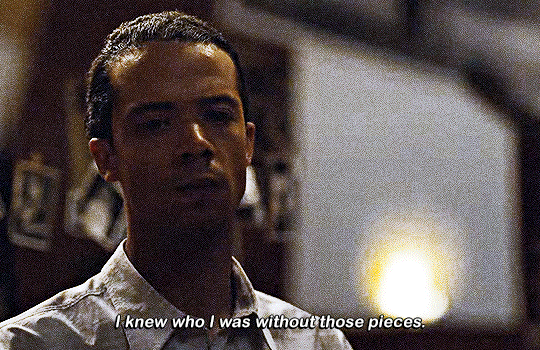
#Interview with the Vampire#loudaniel#danlou#Louis de Pointe du Lac#daniel molloy#iwtv#iwtvedit#tvedit#Vampterview#*gif#truth and reconciliation#there are so many parallels between them in s1 but i'll probably wait for s2 to make it#it will be a huge project. idk how to fit it all#this gifset would work better in video format but i got no programs nor experience#flashing gif
2K notes
·
View notes
Text
Orange Shirt Korra 🧡

Today is the National Day for Truth and Reconciliation, aka Orange Shirt Day, in Canada. It’s a holiday dedicated to raising awareness of the atrocities committed to indigenous children by the Canadian Residential School system.
The Water Tribes in Avatar are heavily inspired by Inuit culture, and Inuit children and communities were greatly impacted by these schools. So, I thought the Avatar would probably want to show her support for the cause.
#the legend of korra#korra#legend of korra#avatar korra#tlok#tlokart#avatar: tlok#tlok fanart#tlok korra#orange shirt day#every child matters#truth and reconciliation#orange shirt korra
925 notes
·
View notes
Text
content warning: residential schools //
as Orange Shirt Day / The National Day of Truth and Reconciliation nears [September 30] I want to give a bit of context to those internationally who might not know that this day is.
Orange Shirt Day was started by Phyllis Webstad and others in 2013. This is a day to reflect and promote reconciliation, as well as uplift and support the victims and communities impacted by the Canadian residential school system. This is also the origin of the Every Child Matters movement.
The National Day of Truth and Reconciliation, as it's known by the Canadian government, was only formed as an official national day in 2021 after 200 unmarked graves were discovered on the property of the former Kamloops indian residential school that same year. Currently there are estimated thousands of graves on residential school properties; many of which have not been properly addressed.
Kivalliq Hall was the last residential school in Canada and closed in 1997. This is not some far-off distant history thing, many people alive today were sent to residential schools as children.
If you want to give support, consider donating to the Indian Residential Schools Survivor Society, or Orange Shirt Day. The IRSSS does fantastic work, offering counselling and numerous support lines - including one for 24/7 crisis support. I'd also like to mention Reconciliation Canada, as they also do good work.
This is a small personal anecdote here, but I'd like to recommend checking out Indian Horse; a novel by the late Richard Wagamese that follows the life of a boy going through the residential school system. There is also a film adaptation by the same name. This book [and its film] offers valuable education on the dark history that is residential schools.
I'm always happy to have additional links and educational material added to my posts, so please do not hesitate to add onto this. thank you.
2K notes
·
View notes
Text
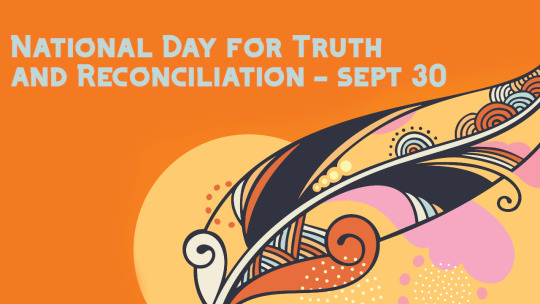
youtube
CBC video: Stolen Children | Residential School Survivors Speak Out
Since their first arrival in the “new world” of North America, a number of religious entities began the project of converting Indigenous Peoples to Christianity. This undertaking grew in structure and purpose, especially between 1831 and 1969, when the governing officials of early Canada joined with Roman Catholic, Anglican, Methodist, United, and Presbyterian churches to create and operate the residential school system. The last federally-run residential school, Gordon Indian residential School in Saskatchewan, closed in 1996. One common objective defined this period: the aggressive assimilation of Aboriginal peoples.
[ legacy of hope ]
#chromatic voice#national day for truth and reconciliation#first nations#turtle island#residential schools#every child matters#missing and murdered indigenous women#mmiwg2s#state violence#canadian content#settler terrorism#christianity as colonialism#orange shirt day
313 notes
·
View notes
Text
Shoutout to Indigenous systems on this day for Truth and Reconciliation!
Today, September 30th, is the Canadian National Day for Truth and Reconciliation. This is a day of remembrance for victims and survivors of Indian residential schools in Canada, though it could likely apply to those who live on Turtle Island in general.
If your system or someone you know is or knows a survivor of an Indian residential school, or has a loved one who did not survive their time in a residential school, our hearts go out to you. We are wishing for you and family a future full of strength, peace, and resilience. Inter-generational trauma can have significant impacts, and the pain imposed on your loved ones and ancestors should not be forgotten as time passes. We hope that their lives can be honored and remembered throughout history, and we want to do our part to help preserve their legacy.
For allies of Indigenous peoples, if you are able to, please wear an orange shirt today to honor those whose lives were forever changed due to the negative impact residential schools has left on indigenous communities. Remember that, even today, Indigenous peoples face hardships, disparities, and inequalities in our society. The closure of residential schools does not mean rest, healing, and proper compensation for the victims of such institutions. Let’s vow as a community to make our spaces safe and accepting of Indigenous systems, and do our part to educate ourselves on their histories so that we may be better allies in the future.
Friends, please show some support to the Indigenous people in your lives today, and do not take their presence for granted. Take a moment to learn more about the history of Indian residential schools in Canada and the United States, and the grim legacy they have left which many Indigenous communities are still dealing with today. If you are able to, please reach out to the Indigenous systems and non-systems in your lives to provide support in whatever ways they have requested.
We will include links to sites and organizations where you can learn more about the Canadian National Day for Truth and Reconciliation and the history of Indian residential schools in both Canada and the USA, along with links where you can directly support survivors of Indian residential schools. Remember, if you cannot support these organizations or individuals financially, you can show your support by educating yourselves and providing a space in your own communities where Indigenous voices can be acknowledged and uplifted.
Indigenous systems, we love you, we are in your corner, and we want to support and uplift you however we can. Please do not hesitate to get in touch if there is anything we can do to help make our spaces more welcoming for you. You have an important and treasured place in the plural community, and we are honored to be able to share this space with you. We hope that you can do your best to treat yourselves and your system with compassion and gentleness today, and take care!

‼️ Non-indigenous systems are welcome and encouraged to reblog, but DO NOT derail or try to center your voice over actual indigenous systems and those who are actually affected by inter-generational trauma due to Indian residential schools!‼️
#plurality#pluralgang#multiplicity#actuallyplural#plural positivity#system positivity#plural pride#system pride#indigenous systems#indian residential schools#intergenerational trauma#day for truth and reconciliation#orange shirt day
149 notes
·
View notes
Text
National truth and reconciliation day.
The last school closed in 1996 not even thirty years ago.
160 notes
·
View notes
Text
Canada, Truth & Reconciliation, & Indigenous Games
Hello friends,
Today (September 30th) is the National Day of Truth & Reconciliation in Canada. It is a very recent holiday in this country, and it’s also very important to me. I want to spend some time today telling you about it, and then (since this is a ttrpg blog) directing you to some indigenous storytellers and designers that deserve a spotlight for various reasons.
I am not Indigenous. This information is a collection of knowledge that I have gained through university coursework, personal research I've undertaken, and relationships I've cultivated with indigenous friends who have taken pains to educate me and highlight how these issues have personally affected them. I am aware that the summary I'm providing is incomplete, and there may be elements that I don't fully understand the implications of.
If you are Indigenous, please keep in mind that this post may recall some painful and personal moments of history for you. Proceed with caution. The shout-outs to indigenous creators can be found after the heading “The Storytellers.”
The Truth.
Canada has been engaged in a cultural genocide of its indigenous peoples since European settlers started the colonization of the country. This genocide had many avenues, including the creation of the Indian Act, the relocation of many Indigenous peoples to restricted Reserves, and a disturbing trend of missing and murdered Indigenous women. For the purposes of today however, I’m going to stick to just talking about Residential Schools, and the impact they had on Indigenous families and their children.
Residential schools were designed to “kill the Indian” and “save the child”, in the words of John A Macdonald, the prime minister who authorized their creation. They were designed to sever Indigenous children from their culture and raise them in a Christian, colonial context. These residential schools were harsh, forbidding Indigenous children to speak their mother tongues, cutting their hair, and forcing them to learn skills considered “useful”, in the language of the colonizer, away from their parents. The schools were also hotbeds of abuse. Alarming numbers of children fell ill and died at these schools - the death toll to this day is unknown. From April 1, 1920 to some time in the 1990’s, residential school attendance was mandatory for Indigenous children from the ages of 7 to 16.
The Sixties’ Scoop is a reference to a mass kidnapping of Indigenous children in the 1950’s and 60’s, who were forcibly removed from their homes and “adopted” into non-Indigenous families. While the last residential school in Canada closed in 1997, Indigenous children still make up over 50% of all children in private foster care, despite only accounting for just over 7% of all children under age 15 in Canada.
The Reconciliation.
Reconciliation is a goal prompted by Indigenous groups and elders. It is a choice that promotes "balance and harmony," a way of life that encourages coexistence, according to the words of one residential school survivor, Hereditary Chief, Dr. Robert Joseph.
In 2007, The Indian Residential Schools Settlement came into effect, offering compensation to survivors of many residential schools.
In 2008, the Truth and Reconciliation Commission of Canada was officially launched, intended to be a guide for the Canadian government to help establish lasting reconciliation. This commission was a way to formalize a method of collecting data, and it also had the responsibility of developing a list of recommendations for the country of Canada to follow, in the goal of pursuing a relationship between the Indigenous peoples of Canada and the government of Canada.
In 2007, Cindy Blackstock, a First Nations (Gitxsan) activist launched a court case against the Canadian government, for under-funding social services provided to children living on First Nations reservations. This was in regards to Jordan’s Principle, a child-first Canadian policy that is meant to ensure that First Nations children have equal access to all government funded public services as other Canadian children. The Truth and Reconciliation Commission made the respect of Jordan’s Principle one of its 94 Calls to Action for the Canadian government.
The Canadian Human Rights Tribunal became involved in 2016, when they found more alleged breaches of the Canadian Human Rights Act in regards to Jordan’s Principle. As of September this year, the Federal Government is still attempting to dismiss human rights complaints regarding the use (or, in fact, neglect) of Jordan’s Principle.
Canada’s history of residential schools and use of the foster care system has grievously wounded Indigenous families and children. The disruption of family life and the forcible removal of children from their culture has created legacies of loneliness, pain, and suicide. Indigenous people today can trace their own familial wounds to the legacy of residential schools and the lack of resources provided to them from the government. The National Day of Truth and Reconciliation is a day to remember this legacy and provide a space for education, but it isn’t enough.
You can learn more about this day and the history behind it by visiting the National Centre for Truth and Reconciliation Website.
You can also watch this 18-minute Youtube video about Residential Schools, or We Can’t Make the Same Mistake Twice, a free 2 & 1/2 hour documentary about Blackstock's continuous fight regarding caring for children using Jordan’s Principle.
I also recommend 21 Things You May Not Know About The Indian Act, by Mary-Ellen Kelm and Keith D. Smith, which breaks down some of the key elements of the Indian Act for everyday person.
So, how do we connect this to ttrpgs?
When it comes to the milestones that have been achieved in Canadian history, those milestones have been made because we listened to Indigenous voices. The recommendations made by the Truth and Reconciliation Commission that have been followed are having real and positive effects for Indigenous peoples in Canada. Listening to the stories of Residential School survivors has been integral to the processes recommended and undertaken by the Canadian government.
We need Indigenous stories. We need Indigenous storytellers.
The Storytellers
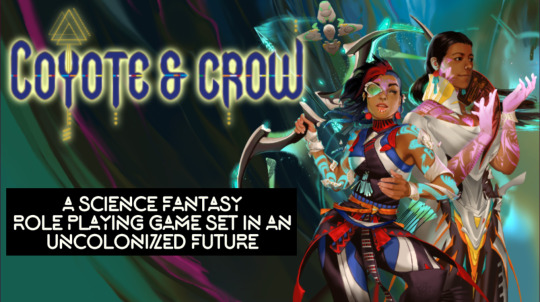

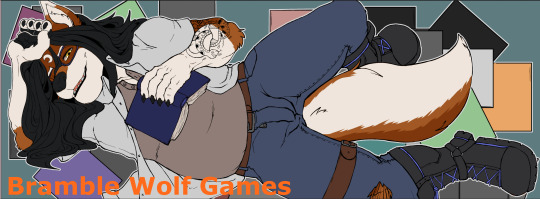
Coyote & Crow.
Coyote & Crow Games is a tabletop games publisher, primarily focused on the tabletop roleplaying game, Coyote & Crow. This is a world and game whose design team is fully Indigenous, from various First Nations people groups across North America. Coyote & Crow is a futuristic game about a land untouched by colonization, a land changed by a series of climate events that have changed the geographical and social landscape. It involves supernatural powers, a completely unique form of civil organization, and a unique d12 dice pool system
In a recent update, Connor Alexander, as the face of Coyote & Crow, announced some business decisions that include a creation of a consultant branch of the company, to provide professional consultation services for other creative endeavours that are looking to include Indigenous Representation in games.
What I love most about Coyote and Crow is that it’s a world where Indigenous creators have been given full reign over the ways they are represented in the fiction, and it provides a unique social and political imagining of society that pulls from many First Nations cultures. It’s refreshing, it’s exciting, and it provides a lot of guidance for non-Indigenous players so that they can engage with the world in a way that’s respectful.
Wendigo Workshop
This is a small team based in Quebec, Canada. I’m not entirely sure whether the team is fully Indigenous, but there are Indigenous creators as part of the team.
Currently the Workshop is working on a number of different games, including… Anomaly Hunters; a monster hunting ttrpg built on the Breathless SRD. Arkelon Chronicles; a science-fantasy ttrpg surrounding the discovery of an Alien ruin. Last Hope; a Caltrop Core game about magical girls fighting to protect the world while balancing their student lives.
Bramble Wolf Games
@sahonithereadwolf is an Indigenous creator based in Appalachia looking to make games that mean something. I found out about him through his game Exceptionals, a game about community, activism and kinetic eye beams. It’s inspired heavily by X-Men, but instead of telling superhero stories, it’s more about the fostering of a community outside of the systems created and enforced by colonial governments.
Sahoni is also currently working on a game called Protect the Sacred, a game inspired by Indiana Jones, but focused on the protection and preservation of monsters and artifacts in the interests of the cultures that have been stolen from by colonial powers. The game is about your relationship to your culture, and resistance to fascism - and you can get sneak peeks to this game through Sahoni’s Patreon.
Both Protect the Sacred and Exceptionals involve character creation that requires players to answer questions about who they are, what they do, and how they affect the community around them. They both recognize the community around you as integral to your success, and I think that this point of view is such an important concept to consider when using games as an art form that can expand your social imagination.
Also...
There is a consultancy service in Alberta, Canada called Pe Matawe Consulting, which is not focused specifically on ttrpgs, but does provide consulting for various creative endeavours. They provide consulting services as well as workshops, with the goal of providing a broader understanding of Indigenous culture and folklore.
162 notes
·
View notes
Text
The Department of Justice has asked an Ontario court to condemn allegations that Canada intentionally withheld evidence of serial child abuse at a residential school to deny survivors justice. The federal government contends there's no evidence Canada acted in bad faith when it failed to disclose thousands of records detailing physical and sexual abuse at St. Anne's Indian Residential School in Fort Albany, Ont., for compensation hearings held between 2006 and 2014. "Some sort of explicit condemnation from the court is necessary regarding these allegations," Justice Canada lawyer Daniel Engel told Ontario Superior Court in Toronto on Thursday.
Continue Reading
Tagging: @newsfromstolenland
#tw child abuse#sex abuse#residential schools#truth and reconciliation#indigenous#first nations#cdnpoli#canadian politics#canadian news#canada
299 notes
·
View notes
Text
Popping in to say I hope all of the indigenous people in the community and worldwide have a day filled with love and healing today.
Every Child Matters!
119 notes
·
View notes
Text
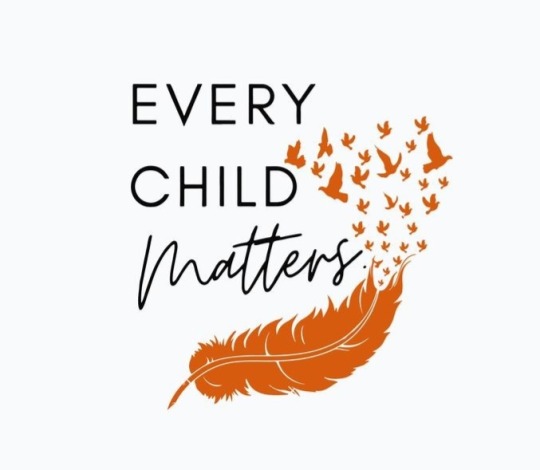
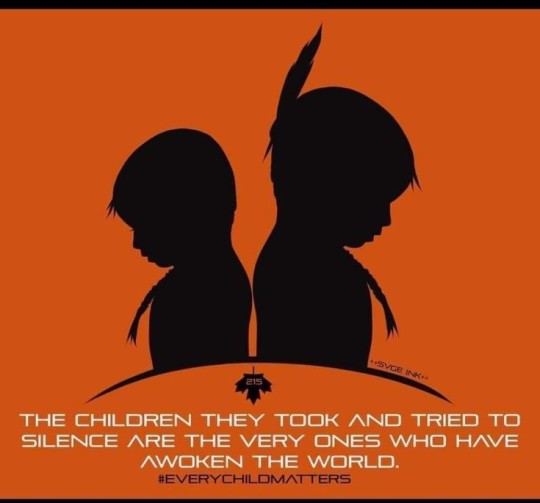
140 notes
·
View notes
Text
Song of the Day
"Call of the moose" Willy Mitchell, 1980 As you might know, September 30th is Truth and Reconciliation day (more commonly known as Orange Shirt Day), a national day in Canada dedicated to spreading awareness about the legacy of Residential schools on Indigenous people. Instead of just focusing on a song, I also wanted to briefly talk about the history of the sixties scoop and its influence on Indigenous American music and activism.
The process of Residential schooling in Canada existed well before the '60s, but the new processes of the sixties scoop began in 1951. It was a process where the provincial government had the power to take Indigenous children from their homes and communities and put them into the child welfare system. Despite the closing of residential schools, more and more children were being taken away from their families and adopted into middle-class white ones.
Even though Indigenous communities only made up a tiny portion of the total population, 40-70% of the children in these programs would be Aboriginal. In total, 20,000 children would be victims of these policies through the 60s and 70s.
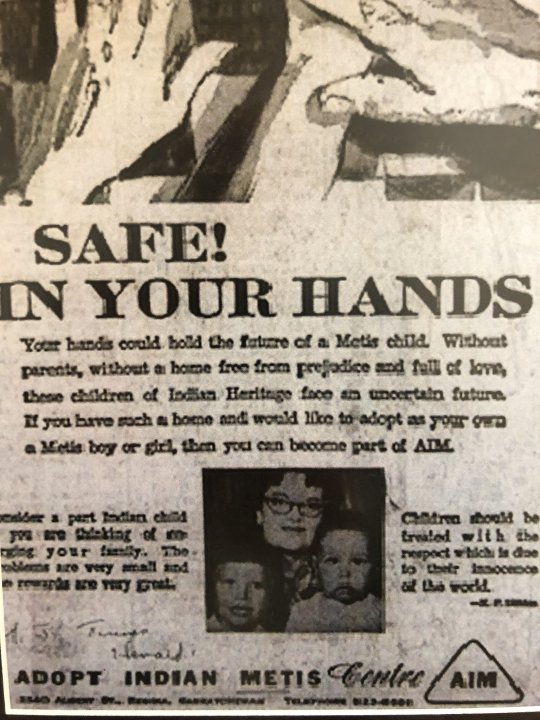
These adoptions would have disastrous effects on their victims. Not only were sexual and physical abuse common problems but the victims were forcibly stripped of their culture and taught to hate themselves. The community panel report on the sixties scoop writes:
"The homes in which our children are placed ranged from those of caring, well-intentioned individuals, to places of slave labour and physical, emotional and sexual abuse. The violent effects of the most negative of these homes are tragic for its victims. Even the best of these homes are not healthy places for our children. Anglo-Canadian foster parents are not culturally equipped to create an environment in which a positive Aboriginal self-image can develop. In many cases, our children are taught to demean those things about themselves that are Aboriginal. Meanwhile, they are expected to emulate normal child development by imitating the role model behavior of their Anglo-Canadian foster or adoptive parents."
and to this day indigenous children in Canada are still disproportionately represented in foster care. Despite being 5% of the Total Canadian population, Indigenous children make up 53.8% of all children in foster care.
I would like to say that the one good thing that came out of this gruesome and horrible practice of state-sponsored child relocation was that there was a birth of culture from protest music, but there wasn't. In fact, Indigenous music has a long history of being erased and whitewashed from folk history.
From Buffy Saint-Marie pretending to be Indigenous to the systematic denial of first nations people from the Canadian mainstream music scene, the talented artists of the time were forcibly erased.
Which is why this album featuring Willy Mitchell is so important.

Willy Mitchell and The Desert River Band
This Album was compiled of incredibly rare, unheard folk and rock music of North American indigenous music in the 60s-80s. It is truly, a of a kind historical artifact and a testimony to the importance of archival work to combat cultural genocide. Please give the entire thing a listen if you have time. Call of the Moose is my favorite song on the album, written and performed by Willy Mitchell in the 80s. His Most interesting song might be 'Big Policeman' though, written about his experience of getting shot in the head by the police. He talks about it here:
"He comes there and as soon as I took off running, he had my two friends right there — he could have taken them. They stopped right there on the sidewalk. They watched him shootin’ at me. He missed me twice, and when I got to the tree line, he was on the edge of the road, at the snow bank. That’s where he fell, and the gun went off. But that was it — he took the gun out. He should never have taken that gun out. I spoke to many policemen. And judges, too. I spoke with lawyers about that. They all agreed. He wasn’t supposed to touch that gun. So why did I only get five hundred dollars for that? "
These problems talked about here, forced displacement, cultural assimilation, police violence, child exploitation, and erasure of these crimes, still exist in Canada. And so long as they still exist, it is imperative to keep talking about them. Never let the settler colonial government have peace; never let anyone be comfortable not remembering the depth of exploitation.
Every Child Matters
#orange shirt day#truth and reconciliation#first nations#song of the day#indigenous folk#canadian history#sixties scoop#indigenous music#folk#folk revival#folk music#folk rock#60s#willy mitchell#song history#60s country#80s music#protest folk#music history#residential schools#american folk#american folk revival#Spotify
113 notes
·
View notes
Text

please wear orange today and educate yourselves on the genocide committed against indigenous peoples
106 notes
·
View notes
Text
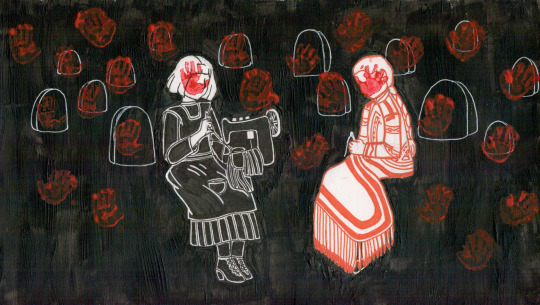
In honour of the lost lives and innocence taken too soon.
#cnanada#united states#indigenous#first nations#orange shirt day#truth and reconciliation#national day of truth and reconciliation#justice#residential schools
516 notes
·
View notes
Text
- september 30th, national day for truth and reconciliation -
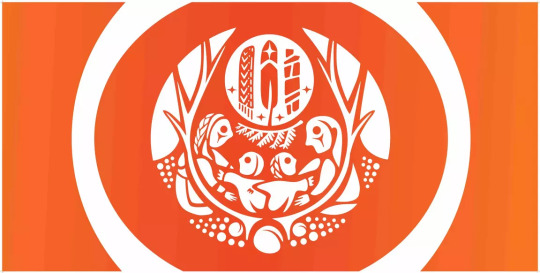

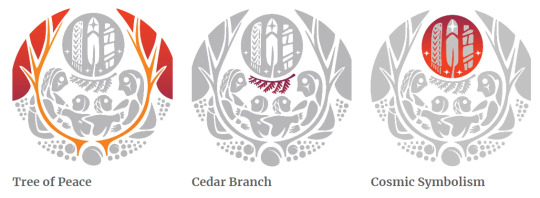

Survivors experienced horrific atrocities while prisoners in these institutions. It is important that this image show the love and strength that colonialism tried to steal from us. Despite genocide, we are still here – still fighting for justice and restitution, as true Warriors. - Dorene Bernard, Mi’kmaq Survivor who attended Shubenacadie Residential School
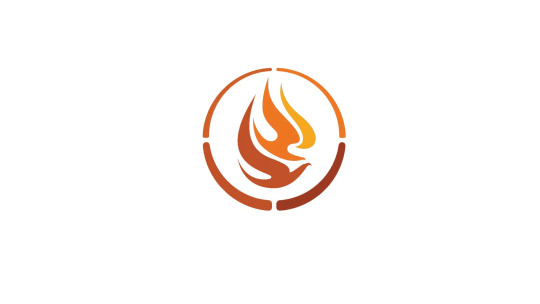
#chromatic voice#national day for truth and reconciliation#first nations#inuit#metis#missing and murdered indigenous women#mmiwcanada#residential schools#indigenous#turtle island#unceded land#survivor testimony#orange shirt day
1K notes
·
View notes
Text
Not so subtle reminder to my followers, especially those in Canada ect, if you don't know about the mass cultural genocide of indigenous people within Canada & The US.
On September 30th, it's national Truth and Reconciliation day in Canada. Which is a honestly our government's bullshit way of getting away with not really acknowledging or doing anything to actually reconcile with their murder of children.
As a mixed Native, I'm honestly sick of seeing the lack of care I see on social media and in society for indigenous people. I'm over it. I'm tired. My heart bleeds and aches when I think about how many children never made it home and how many Missing and Murdered indigenous women, girls and 2spirit people there are.
I want allies to step it the fuck up. Where is the same outrage, where is the fire, where is the passion you have, especially looking at you white allies, for everyone else?
Land Back. Real truth and reconciliation. Listen to indigenous people.
Here are some starting points.
449 notes
·
View notes